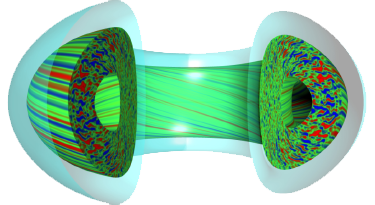Speaker
Description
Disruption predictors based on traditional machine learning have been very successful in present day devices but have shown some fundamental limitations in the perspective of the next generation of Tokomaks, such as ITER and DEMO. In particular, even the most performing require an unrealistic number of examples to learn, tend to become obsolete very quickly and cannot easily cope with new problems. These drawbacks can all be traced back to the type of training adopted: closed world training. In the contribution, it is shown how the new approach of open world training can solve or at least significantly alleviate the aforementioned issues. Adaptive techniques, based on ensembles of classifiers, allow following the changes in the experimental programmes and the evolution in the nature of the disruptions. Exploiting unsupervised clustering, new predictors can autonomously detect the need for the definition of new disruption types, not yet seen in the past. All the solutions can be implemented from scratch, meaning that the predictors can start operating with just one example of disruptive and one of safe discharge. The proposed techniques would obviously be particularly valuable at the beginning of the operation of new devices, when experience is limited and not many example are available.
| Country or International Organisation | Italy |
|---|---|
| Affiliation | University of Rome Tor Vergata |

